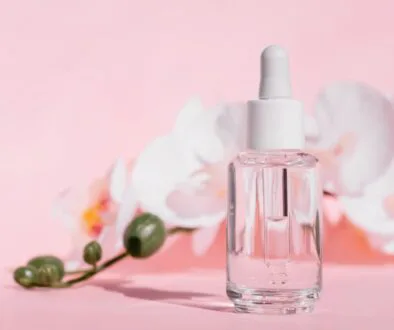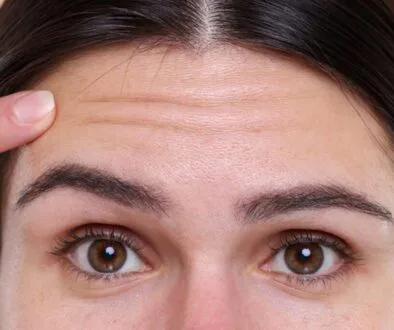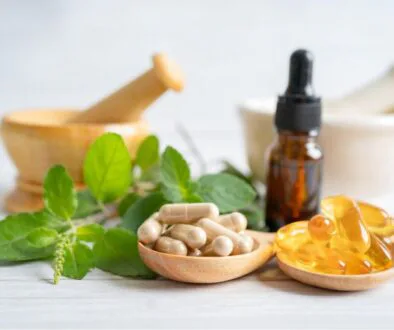How to Get Rid of Acne Scars Fast

Published May 30, 2021
Have you ever experienced a time in your life when you were about to go on a special event, but you had acne on your face? So you felt the need to get rid of it quickly and popped it right there and then. But it only gave you another problem, a visible, dark scar. Now you also have to worry about how you’d be able to hide your acne scar.
Acne scars can be so frustrating because they won’t only leave a scar on your skin; they could also leave a scar on your self-esteem.
Actually, acne is easy to heal, and sometimes they fade away on their own. However, acne scars are more troublesome and may even require you to consult a doctor, which will cost a lot of money. So if you’re wondering how to get rid of acne scars fast, we’re going to help you through this article. But before we get to that, let us take a broader look at why acne leaves scars and its different types.
Why Does Acne Leave Scars?
Acne scars appear when acne is severe enough to cause lesions. Acnes are usually triggered by a certain type of bacteria, hormonal changes, stress, or unhygienic practices. These bacteria are called propionibacterium acne, and they live on the skin. If they happen to get into clogged pores and infect them, it causes our skin to form blemishes or, worse, scars.
Take note that acne scars and blemishes are two different things. Hyperpigmentation is not the same as scars; it only happens when a discoloration appears after a pimple has healed. To sum it up, it is the skin’s natural reaction when one experiences inflammation and would easily fade away over time. Being aware of their differences greatly impacts how you can treat your acne scar more effectively.
What Are The Different Types of Acne Scars?
There are two main categories for acne scars: Atrophic Scars and Hypertrophic Scars. Under them, there are at least four types of acne scars, namely rolling scars, ice pick scars, boxcar scars, and keloid scars.
Atrophic and Hypertrophic Scars
- A loss of tissue causes Atrophic scars.
- Hypertrophic scars are caused by excess tissue.
Rolling Scars
This type of scar makes your skin look uneven with its wavy and sloping edges. Rolling scars are typically found on the thicker part of your skin, like your jaw and lower cheeks. Hence the “rolling scar.”
Ice Pick Scars
As the name suggests, Ice Pick scars make the skin look like it’s been pierced by an ice pick. These scars extend deep into the dermis and make slim and small holes that make the pores look so open. Given how this scar could damage your skin, home remedies aren’t usually effective.
Boxcar Scars
Boxcar scars are somehow similar to Ice Pick scars. The only thing that makes it different is how round and wider they look by giving the skin an uneven pockmarked surface.
Hypertrophic Scars and Keloids
Hypertrophic scars are far different from the three scars mentioned above. This type of scar is firm and grows just above the skin that looks like a raised scar. This is most common after a deep wound healing.
Keloids are a more severe type of scar. This grows bigger than the original wound and would sometimes continue to expand laterally. Keloids are the most evident type of scar as it is protruded on your skin.
Will They Ever Go Away?
While some would always say that these scars never fade, we have to trust our skin’s abilities to heal over time.
Our skin can produce collagen, which will help your body heal itself. The deeper the scar is, the longer it takes for your skin’s collagen-producing ability to work efficiently. Collagen will help even out your skin and build back the skin’s structure. So trust and be patient! In the end, all will be back to normal again.
Try having a daily skincare routine that best fits your skin condition. This, together with the proper acne scar treatments, will undoubtedly help speed up the healing process.
Excellent Ways to Get Rid of Acne Scars
Acne scars are naturally more difficult to get rid of than actual acne, though, for the best part, it was never said that it is impossible to do. It will take a lot of time for the whole process to take effect, but surely, the results will be satisfying once your skin is back to its smooth and soft texture.
Natural Remedies
Treating acne scars naturally is the most cost-efficient way to solve your problem. Everything you’ll need to get rid of acne scars may be found in your home or the market, such as:
- Shea butter – Its properties help boost moisture and nourishment to treat scars. This is primarily because of its anti-inflammatory properties.
- Lemon and Honey – Lemon can lighten your skin with its acid, while honey boosts the process of healing.
- Baking soda – Almost the same as shea butter, its properties also contain anti-inflammatory.
- Turmeric powder – It helps even out skin tones and contains both antioxidants and anti-inflammatory.
- Aloe vera gel – The almost transparent green gel from the plant exfoliates your skin from the dead skin cells.
- Essential oils – This is most effective in hypertrophic scars as this reduces inflammation and redness of scars and wounds.
Cosmetic Procedures
Professional help is needed in severe acne scar cases, especially if natural remedies aren’t effective anymore. This may also help reduce and permanently eliminate your scars. These procedures are:
- Chemical peels – A procedure wherein a chemical solution is applied to your skin to remove the top layers until you get your desired result.
- Dermabrasion – Same with chemical peels, it is also a procedure where it removes the top layer of the skin to improve acne scars’ appearance.
- Microneedling – This is where very tiny needles puncture your skin to reduce the scar’s depth since puncture marks create collagen pockets.
- Dermal fillers – Hyaluronic substance is a gel-like substance injected beneath the skin that helps restore the skin’s smooth surface.
- Corticosteroid injections – This is the most effective procedure for hypertrophic scars as it can help reduce the scar’s size.
- Laser therapy – Laser is used to remove the top layer of your skin and helps produce more collagen.
- Platelet-Rich Plasma (PRP) Treatment – The PRP that is injected helps stimulate tissue regeneration and speeds up the healing of the scar.
- Punch excision – It is a procedure where the doctor will cut the scar out and let it heal after the skin gets stitched back together.
- Punch grafting – A part of your skin from your body would be cut out and used as a replacement for your already cut scarred skin.
- Punch elevation – This is another type of procedure wherein the scar is also cut out. Only this time, the sides are left to be reconnected to help the skin look smoother as it heals over time.
- Surgery – For intense scars, consulting your dermatologist is best as they can give a professional diagnosis and surgical recommendations regarding your scar. They may recommend a surgical procedure to get rid of the scarred skin entirely.
Remember that you must only trust board-certified dermatologists when it comes to your skin.
Home Treatments
If you can’t afford nor like the idea of having cosmetic surgery, you always can always resort to the items you may have at home. They may not completely erase your scar, but they can still help your skin improve:
- Salicylic acid – This can be found in most anti-acne creams sold in the market. This helps reduce swelling and redness.
- Retinoids – It boosts skin improvement and helps reduce discoloration.
- Niacinamide – Almost the same as retinoids; this also helps minimize scars and dark spots.
Lactic acid – It helps make scars less noticeable and improves the texture of your skin at the same time.

Are you still wondering how to get rid of acne scars fast? Are you still worried? Remember that every person’s body reacts differently to every possible treatment there is. Some may not need to use any treatments as their body heals rapidly. While some really need to take their time and use more than just one remedy to restore their skin’s original state. As much as natural products can be a quick fix to your problem, never hesitate to reach out to a professional to consult, just to be safe.
We Are A Medical Beauty Spa In Boca Raton Florida
Four Seasons Laser Center is a highly renowned med spa in Boca Raton Florida. Our state of the art equipment is run by highly trained and experienced staff so you can rest assured that you are in good hands. We offer laser hair removal services for your whole body, PDO Threads facelift, safe and effective Plasma Fibroblast skin tightening, and other advanced medical beauty services to help you look your best. Contact us now to book a free consultation.

Fact Checked By Experts
This content has been thoroughly fact-checked by our team of internal experts. For further information regarding the editorial standards we adhere to, please click here.

About The Author
Krizzia Paolyn is a professional writer for several reputable digital magazines and publications. It has always been her passion to share her voice, and at the same time, to encourage other people to speak up. She has a bachelors degree in Psychology.


